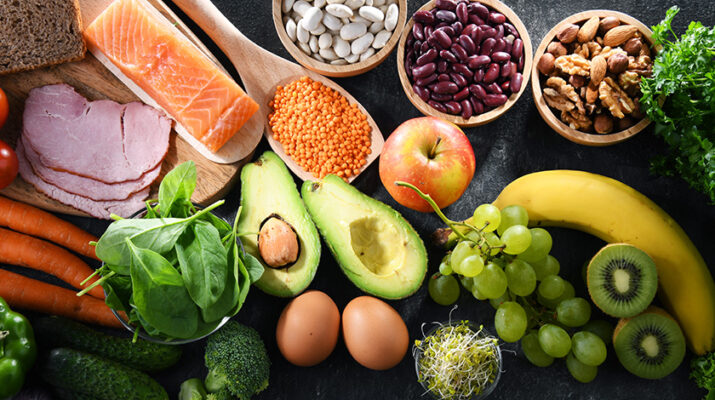By Deborah Jeanne Sergeant
Unfortunately, there’s no silver bullet for brain health. Avoiding Alzheimer’s and other forms of dementia isn’t as simple as, “Eat this and you’re guaranteed to never have dementia.”
But diet does play a role in supporting brain health.
“There is not a food or a food group what will reduce Alzheimer’s,” said Eileen “Izy” Grooms, registered dietitian and program coordinator for nutrition and dietetics and associate professor at Finger Lakes Community College in Canandaigua. “However, the mantra of, ‘Eat more whole foods and less processed foods’ is one of our pathways to longevity and potentially delaying Alzheimer’s.”
She described a “whole food” as one with little or no refining or processing. It should also contain no artificial additives or preservatives.
“Try to make small changes to whole foods every two weeks and after one year, you will have made huge changes,” she said. “It can be as easy as grabbing fruit for a snack.”
Ideally, the fruit should be a whole piece, such as a peach but not a canned peach. But a peach canned in natural juices is a better choice than in heavy syrup. And any produce is a better choice than items like chips or candy. Snack on baby carrots, celery stalks or broccoli spears with hummus dip.
“Brain neurons feed off of ketones and glucose,” said Debra Kostiw, certified master dementia strategist and owner of Answers About Alzheimer’s, Inc. in Rochester. “Your brain prefers the ketones over the glucose. If we can reduce glucose and increase the ketones, the brain is happier, healthier and performs at a higher level. We need to reduce carbs like sugars and processed stuff. They are what ‘gunks up’ the brain. If simple carbs are there, it’ll eat those first and faster.”
Whole grains are complex carbohydrates. Whole grain bread (not just “wheat bread” that’s dyed with caramel food coloring to look darker), popcorn, oatmeal and whole grain crackers such as Triscuit are a few examples. But watch out for added salt, flavoring agents and sugar. Making your own foods, such as air popped popcorn instead of bagged popcorn can help you control what’s in your food.
Kostiw said that one of the ways to increase the ketones is with pure coconut oil. But slowly introduce it, as “it can be tough on the digestive system. I tried it and felt better half an hour after I took it. I felt a little clearer,” she said.
Omega-3 fatty acids also support brain health. Kostiw suggested fatty fish like salmon, trout, mackerel and tuna. Flax seeds and flaxseed oil, chia seeds and walnuts are also good sources.
“What’s good for the heart is good for the brain,” Kostiw said. “If it’s a heart healthy diet, it’s good for the brain.”
The most recent research indicates that the Mediterranean diet supports heart and brain health. According to the Mayo Clinic, the Mediterranean diet includes vegetables, fruits, whole grains, beans, nuts and seeds, olive oil and seasoning with herbs and spices. The Mayo Clinic further stated, “The main steps to follow the diet include: each day, eat vegetables, fruits, whole grains and plant-based fats; each week, have fish, poultry, beans, legumes and eggs; enjoy moderate portions of dairy products, limit how much red meat you eat; limit how many foods with added sugar you eat.”
It is also important to eat a wide variety of fruits and vegetables.

